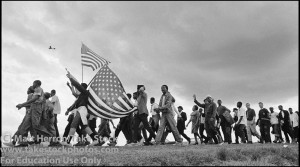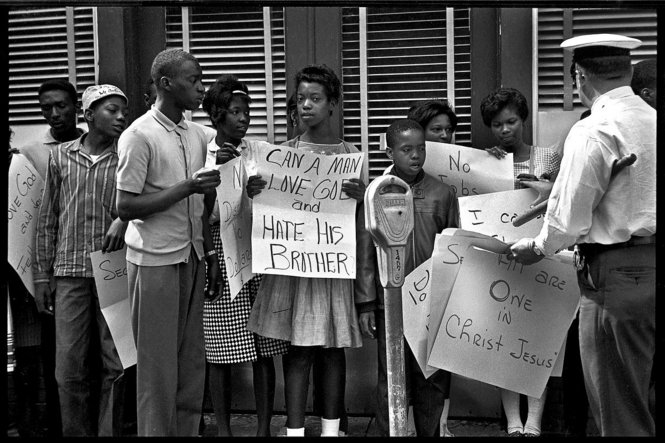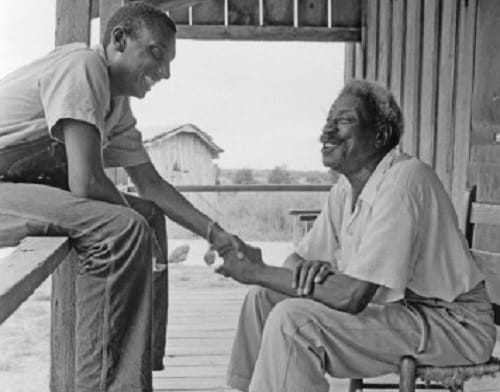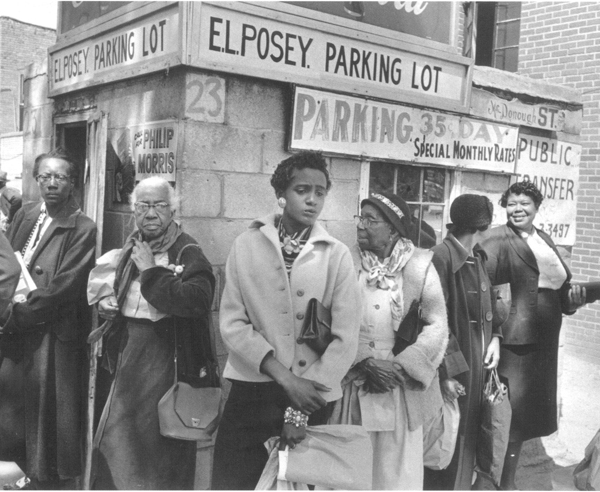Following the successful Montgomery Bus Boycott on December 20, 1956, ninety miles away in Birmingham, Alabama, Reverend Fred Shuttlesworth “attempted to desegregate the Birmingham Transit Company.” According to the Encyclopedia of Alabama,

Fred Shuttlesworth and other Black protesters seated in the white section of a bus in Birmingham, Alabama, on December 26, 1956. Source: Alabama Department of Archives & History
After Shuttlesworth announced plans to lead Black riders in a protest on December 26, segregationists bombed his home. Shuttlesworth survived the explosion unharmed, which convinced him and his followers that God had miraculously saved him “to lead the fight” against segregation.
Shuttlesworth and his family survived this violent assassination attempt by the KKK on Christmas Day and proceeded as planned, joining white passengers on Birmingham city buses the following day.
Describing the protest, Stanford University’s King Institute describes,
In Birmingham, Shuttlesworth integrates white sections of buses with two hundred participants. Police arrest more than twenty people for violating segregation laws. At a mass meeting that evening, Birmingham bus protesters vote to continue their activities after Shuttlesworth reads a telegram from King. The Alabama Christian Movement for Human Rights files a suit in federal court to desegregate Birmingham’s buses.
Just weeks later, the Reverends Shuttlesworth, Ralph Abernathy, and Martin Luther King Jr. founded the Southern Christian Leadership Conference. Reverend Shuttlesworth and his family survived four more attacks by white supremacists in the following years, and Birmingham, too, faced years of violence ahead.

(L to R) Reverends Fred Shuttlesworth, Ralph Abernathy, and Martin Luther King Jr.,defied an injunction against protesting on Good Friday in 1963. They were arrested and held in solitary confinement in the Birmingham jail where King wrote his famous “Letter From Birmingham Jail.”
Source: NPR / Birmingham Public Library Archives
According to an article by Cherie S. White,
The Birmingham protests were under constant threat from white racist mobs and others looking to silence the rising movement. The boycotts officially ended in November 1958 and the following year a slight victory came when a judge said Blacks sitting in the front of the bus wasn’t a true crime, although it remained an official city policy.
Additional Resources
African-Americans in Birmingham, Alabama, protest segregation, 1956-1958 (Global Nonviolent Action Database












Twitter
Google plus
LinkedIn